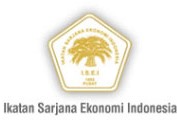Technology Absorption as a Main Indicator of Global Entrepreneurship Performance
(1) Universitas Negeri Semarang
Abstract
Keywords
Full Text:
PDFReferences
Agri, E.M., Kennedy, N.D., Bonmwa, G.O., & Acha, O.F. (2018). Technology Innovation and Sustainable Entrepreneurship Development in Nigeria: Stakeholders’ Impact Assessment in Central Nigeria, Journal of Economics, Management and Trade, 21(3), 1-16.
Arunachalam, S.; Ramaswami, S.; Herrmann, P.; Walker, D. (2018). Innovation pathway to profitability: The role of entrepreneurial orientation and marketing capabilities. Journal of the Academy of Marketing Science, 46, 744–766.
AtiAE, V.Y., Dzansi, D.Y. & Ameh, J.K. (2020). Technology absorption capacity and firm growth in Africa. View project, 341655891. https://www.researchgate.net/publication/
Atiase, V.Y., Dzansi, D.Y., & Ameh, J.K. (2020). Technology absorption capacity and firm growth in Africa. ResearGate, 343041337. https://www.researchgate.net/publication/
Badzińska, E. (2016). The Concept of Technological Entrepreneurship: The Example of Business Implementation. Entrepreneurial Business and Economics Review, 4(3), 57-72. doi: 10.15678/EBER.2016.040305.
Bailetti, T. (2012). Technology Entrepreneurship: Overview, Definition, and Distinctive Aspects. Technology Innovation Management Review, 2, 5-12.
Choi, D.S., Sung, C.S., & Park, J.Y (2020). How Does Technology Start-ups Increase Innovative Performance? The Study of Technology Start-ups on Innovation Focusing on Employment Change in Korea. Sustainability, 12(551), 1-14.
Goldberg, I., Branstetter, L., Goddard, J. G., & Kuriakose, S. (2008). Globalization and Technology Absorption in Europe and Central Asia The Role of Trade, FDI, and Cross-border Knowledge Flows. World Bank Working Papers, No. 150. 1818 H Street, N.W.: Washington, D.C. 20433, U.S.A. doi: 10.1596/978-0-8213-7583-9
Huang, K. (2011). Technology competencies in competitive environment. Journal of Business Research, 64(2), 172–179.
Johnston, M.P. (2014). Secondary Data Analysis: A Method of which the Time Has Come. Qualitative and Quantitative Methods in Libraries, 3, 619-626.
Kim, J., & Yoo, J. (2019). The Efects of Entrepreneurial Orientation and Environmental Uncertainty on Korean Technology Firms’ R&D Investment. Journal of Open Innovation: Technology Market Complexity, 5(29), 1-13.
Mao, C., Koidea, R., Bremb, A., & Akenjia, L. (2020). Technology foresight for social good: Social implications of technological innovation by 2050 from a Global Expert Survey. Technological Forecasting & Social Change, 153.
Martins, F. S., & da-Cunha, A. C. (2018). Secondary Data in Research Uses and Opportunities. Journal of Strategic Management, 17(3), 1-5.
Morales, V.J.G., Ramos, M.T.B., & Rojas, R.M. (2014). Technological variables and absorptive capacity's influence on performance through corporate entrepreneurship. Journal of Business Research, 67, 1468–1477.
Nasiri M., Ukko, J., Saunila, M., & Rantala, T. (2020). Managing the digital supply chain: The role of smart technologies. Technovation, 96-97(2020), 102-121.
Olawuyi, D.S. (2018). From Technology Transfer to Tehnology Absorption Addressing Climate Technology Gaps in Africa. Journal of Energy & Natural Resources Law, 36(1), 61-84. doi: https://doi.org/10.1080/02646811.2017.1379667.
Prasetyo, P.E., & Siswantari, H. (2020a). Technology Absorption in Entrepreneurial Aspirations and Capabilities. International Journal of Innovation, Creativity and Change, 14(3), 1264-1277.
Prasetyo, P. E. (2020b). Attitudes, Aspirations and Entrepreneurial Capabilities: Key Dimensions of Entrepreneurial Performance [Sikap, Aspirasi dan Kemampuan Wirausaha: Dimensi Utama Kinerja Kewirausahaan]. Journal of Management and Entrepreneurship, 8(2), 1-12.
Prasetyo, P. E., & Dzaki, F.Z. (2020c). Institutional performance and new product development value chain for entrepreneurial competitive advantage. Uncertain Supply Chain Management, 8(4), 561-576.
Prasetyo, P. E., & Kistanti, N. R. (2020d). Human capital, institutional economics and entrepreneurship as a driver for quality & sustainable economic growth. Entrepreneurship and Sustainability Issues, 7(4), 2575-2589.
Prasetyo, P. E. (2019). The Reliability of Entrepreneurial Productivity as Driver of Economic Growth and Employment. International Journal of Entrepreneurship, 23(4), 1-15.
Thomas, B. (2014). A Model of the Diffusion of Technology into SMEs. ResearchGate, 255587273. Retrived from https://www.researchgate.net/publication/
Refbacks
- There are currently no refbacks.

This work is licensed under a Creative Commons Attribution 4.0 International License.






